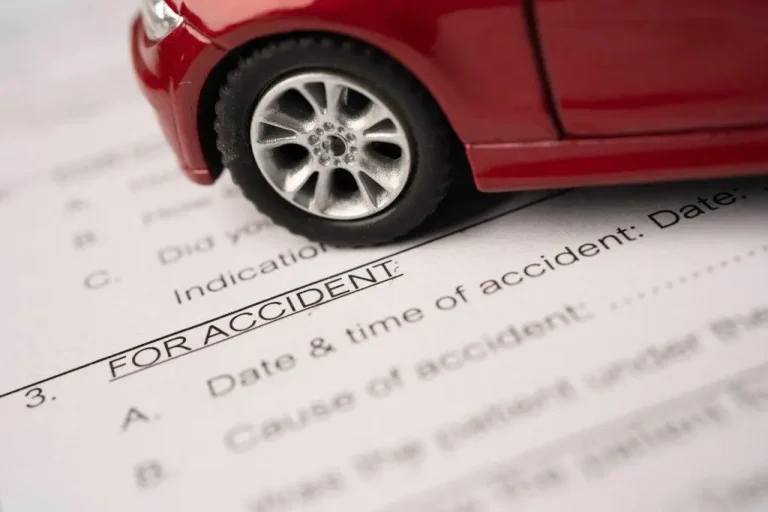What Victims Need to Know Before Filing a Personal Injury Claim
Life moves fast—until something unexpected brings it to a grinding halt. Whether it’s a crash on your daily commute or a slip in the grocery aisle, accidents can turn everything upside down. The truth is, most people don’t think about legal claims until they’re suddenly forced to.
In Denver, thousands of personal injury claims are filed each year, ranging from motor vehicle accidents and workplace injuries to slip-and-fall cases and medical negligence. Shockingly, a large number of victims never receive full compensation. Why? It often comes down to what they didn’t know. From missing deadlines to talking too openly with insurers, simple mistakes can cost you big. The good news? Being informed puts you in control.
This guide will walk you through 10 things you absolutely need to know before starting your claim. If you’re hurt and looking for answers, this is where you start taking back your power.

Not Every Accident Leads to a Valid Claim
Just because you got hurt doesn’t mean you automatically qualify for compensation. A valid claim depends on proving that someone else was careless and that their actions led to your injuries. That could be a distracted driver, a store that didn’t clean up a spill, or a landlord who ignored safety issues. Understanding what counts—and what doesn’t—can help you figure out if it’s worth pursuing legal action in the first place.
Working with the Right Attorneys Can Make a Difference
When you’re injured, dealing with legal paperwork, insurance adjusters, and deadlines can quickly become overwhelming. It’s easy to make mistakes that could cost you time and money. That’s where legal support comes in. A qualified attorney knows how to build a strong case, avoid delays, and push back against lowball settlement offers. An experienced Denver personal injury attorney, like the ones at Bachus & Schanker, LLC, can be a strong ally in these cases. They focus on helping injured victims navigate complex legal systems. They handle everything from gathering evidence to negotiating with insurers—so you can focus on healing while they work to protect your rights and fight for the compensation you deserve.
Know the Statute of Limitations
There’s a clock ticking the moment an accident happens. Most injury claims must be filed within two years in Colorado—but waiting too long could mean losing your right to file at all. Even if you think you have time, it’s smart to act early. Starting sooner gives your legal team time to gather evidence, talk to witnesses, and build a solid case without rushing against the clock.
Documentation is Everything
If it’s not written down or photographed, it may as well not exist. After an accident, your best bet is to gather as much evidence as you can. Photos of the scene, witness contact info, and your medical records are all key. Keeping everything organized in a folder or digital drive can make your claim much easier to manage—and help prove your side if the other party tries to deny fault.
Insurance Companies Are Not on Your Side
Insurance companies may sound helpful, but their main goal is to pay out as little as possible. They’re trained to settle quickly—and cheaply. Some even use tricky questions to get you to say something they can use against you. That’s why it’s smart to have someone on your side who knows the game. With a legal pro guiding the conversation, you can stay protected and push for a settlement that actually covers your medical bills, missed work, and long-term recovery costs.
Medical Treatment and Recovery Impact Your Case
Getting medical help right after an accident isn’t just important for your health; it strengthens your claim. Medical records show what injuries you had, how serious they were, and what treatment was needed. Delaying treatment can raise questions about how badly you were hurt. Be honest with your doctors and follow through on appointments. These records help prove the link between the accident and your condition and give your attorney the facts they need to argue for full compensation.
Don’t Discuss Your Case Publicly
Talking about your case online or with others can seriously hurt your chances. Insurance companies or defense lawyers may find your posts or comments and use them to argue against your claim. Even something as simple as a smiling photo or a casual statement could be misunderstood. It’s best to avoid posting updates or discussing details with anyone except your legal team. When in doubt, keep things private until the case is over—your future payout may depend on it.
Every Case is Unique—Avoid Comparing Yours to Others
It’s natural to compare your situation to someone else’s, but every case is different. What worked for a friend might not work for you. The outcome depends on many factors, like how the injury happened, the evidence available, who was at fault, and the type of insurance involved. Relying on someone else’s story could give you false hope or unnecessary worry. Instead, focus on your own journey and let your legal team guide you based on the facts of your case.
Settlements Are More Common Than Trials
Most claims don’t end up in a courtroom. In fact, many are settled through negotiations between lawyers and insurance companies. This often saves time, stress, and money for everyone involved. A good settlement should cover your medical bills, lost wages, and other related costs. Your lawyer will help you understand if an offer is fair—or if you should push for more. Going to trial is still possible, but it’s usually a last resort when both sides can’t agree.
The Right Attorney Makes a Big Difference
Having the right legal support can change the outcome of your claim. A skilled attorney knows how to investigate, collect evidence, and deal with tough insurance reps. They’ll also keep you informed and prepared at every stage. Look for someone with experience in similar cases, clear communication, and a reputation for standing up for their clients. You want more than just a lawyer—someone who truly cares about your recovery and future.
Filing a personal injury claim isn’t something most people plan for—but knowing what to expect makes it easier. Don’t rush into things blindly if you’re dealing with an injury. Use these tips, ask questions, and work with the right people—you only get one chance to do this right.






